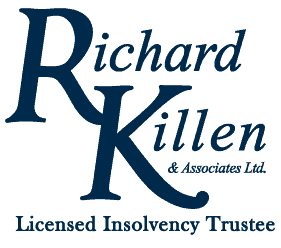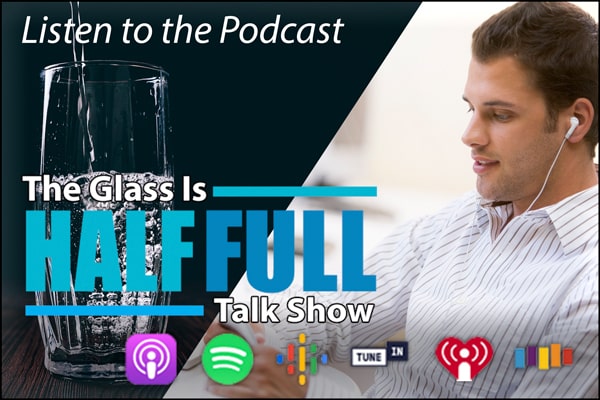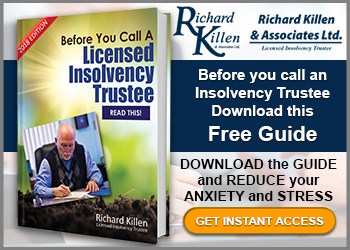How to Create a Budget with Irregular Income
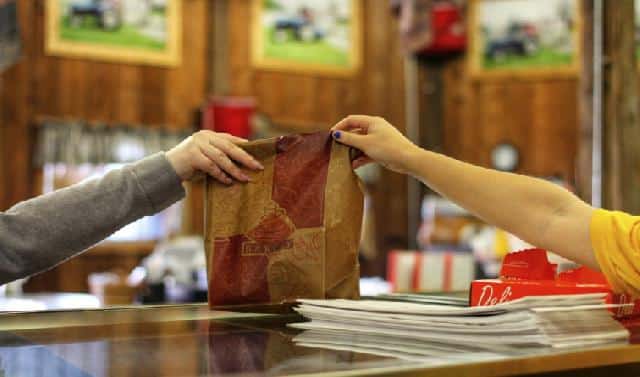
Following a budget can be challenging enough when you have a steady job that pays you a regular basic income, but can you imagine how extremely difficult it can be to create a budget with irregular income?
With a regular income, you can predict exactly how much money you’ll have coming in each and every month and you know exactly how much money you have to cover all your expenses. However, with an irregular monthly income, you have to contend with fluctuating income levels and commissions. It’s tough to plan when:
- You don’t know how much you’ll earn,
- You don’t know when you’ll get paid, and
- You don’t know how much you’ll make the following month.
This is a common scenario for people who are:
- Self-employed
- Freelancers
- Contractors
- Working on hourly rates like bartenders, waiters and waitresses, custodians
- Working on a commission basis like salespeople
- Have side gigs that change up their income every month
- When your income is reduced temporarily, for instance, because of COVID-19
If your income varies wildly depending on the day or season, here are some strategies to help you effectively budget.
Determine your baseline
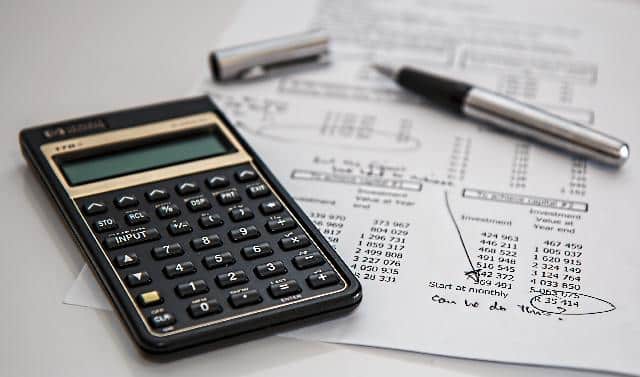
Start by adding all the money that you are certain of for the month as income. This can be money you have coming in from your side hustle or business, plus unemployment benefits you may be receiving under the COVID-19 Emergency Response Act.
Your baseline is the minimum amount you want to focus on regardless of whether you make more or you earn less, for month by month. This is the amount you will work with to cover the bare minimum expenses you need to pay for on a monthly basis.
Track your monthly spending from previous months
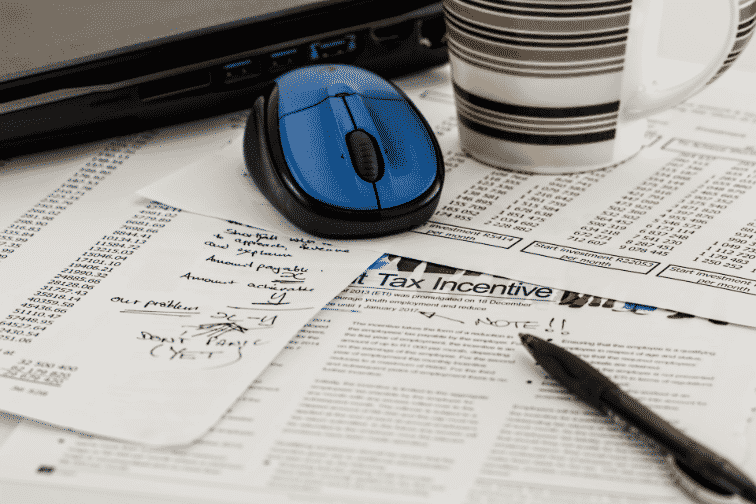
The next thing to do is make a list of your spending and bills. This step is crucial to help you know what you absolutely need to earn monthly in order to pay your bills and get by.
Itemize each expense. For example:
Create a category for Necessities — essential, ongoing monthly expenses:
- Rent or mortgage
- Utility bills
- Food and groceries
- Medical bills
- Transportation and fuel and car maintenance
- Daycare
- Taxes
- Loans and debt repayments
- Savings, investments
Create another category for Discretionary Expenses:
- Cable/television bill
- Entertainment
- Expenses for fitness, sports or hobbies
- Take out or dining expenses
- Shopping for clothing, toiletries
During COVID-19, it may be easier to cut discretionary expenses completely. Expenses for dining out, entertainment and travel won’t be necessary due to social distancing measures. This means you may have more money to assign to debt repayments and savings for the month.
Allocate every penny
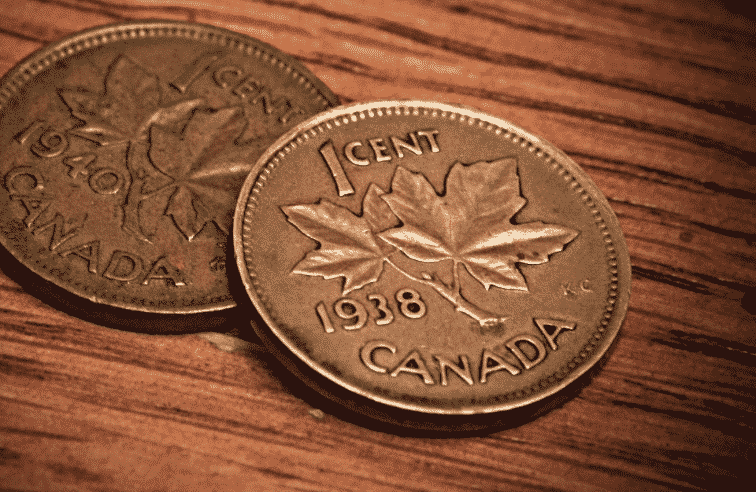
Once you’ve created your budget for necessities and added up your unnecessary expenses, you’ll know exactly how much money you need to make it through the month.
Expenses under the Necessities group are things that you couldn’t reasonably live without. So, more or less this amount is fixed. Those under the Discretionary group are the expenses that you’ll need to cut if you’re trying to make your budget fit your income.
The goal is to adjust your discretionary expenses until you’re back to living within your means.
Make sure you divide every income that comes into your necessities before anything else, otherwise you are going to run the risk of spending half of your income on discretionary items and not having enough left over for food and groceries.
Each month, repeat the process and make a new budget based on that month’s income and expenses, assigning each dollar in your budget to a particular expense.
Build your emergency fund
When you are living on an irregular income, it’s crucial to have ample savings to help fill in the gaps when bad months come along. Make sure to allocate a portion of your income into an emergency fund. If you are just starting out, it would be best to put any extra money that you may earn towards emergency savings first. Do this until you have at least three to six months of expenses on hand.

Create financial goals
If there is any extra money after expenses and emergency savings, make sure you carefully plan out what you’re going to do with it. Is it going towards paying off debt? Is it for savings for your children’s college education? Will it go towards your retirement savings? It’s important to set a goal for any excess money you may have so that you avoid the risk of blowing it.
A simple, stripped-down budget where you can see just your essential expenses, and nothing else, can be helpful in managing your spending if you have irregular income and also if you’ve experienced a job loss or if your income is reduced temporarily because of COVID-19. It can help you see exactly where every dollar is going each month and it can help you avoid unnecessary spending. When you budget with irregular income, every penny counts and there’s no room for money to slip through the cracks.
If you have trouble doing this and would like to discuss it we would be very happy to do so. Just call us at 1-888-545-5365 or email us at info@killen.ca.
If things have gotten troublesome with your debt situation, especially with this Covid-19 virus don’t hesitate to contact us for a telephone or Skype interview. We can help.
What Debt Do You Pay First During a COVID-19 Financial Emergency?

The world has been brought almost to a stop as we focus on fighting the spread of the coronavirus. Throughout Canada, we see business after business shut down and hundreds of thousands of people laid off. Some closures may be temporary, for some it may be permanent as they may not be able to recover after the crisis has abated.
While these closures may be necessary to deal with the virus, there are significant financial consequences to individuals and families. For Canadians who are living paycheck to paycheck this means that even a temporary reduction is going to cause a lot of problems.
If you are facing unpaid bills during this uncertain time, what debt should you focus on? What bills do you choose to pay first? Here are a few things to consider:
- If you are working, continue paying your bills and debts on time. Avoid the deferral programs if you do not need the financial help now, just go on and keep making those payments. If nothing else, make sure to make at least your minimum payments to avoid late charges, penalties, and potential negative hits to your credit.
- If you have been laid off or expect to be out of work in the coming weeks, you may need to look at prioritizing payments.
FOCUS ON HIGH PRIORITIES
High priority debts are generally the bills where a service will be shut off or an asset is in danger of repossession.
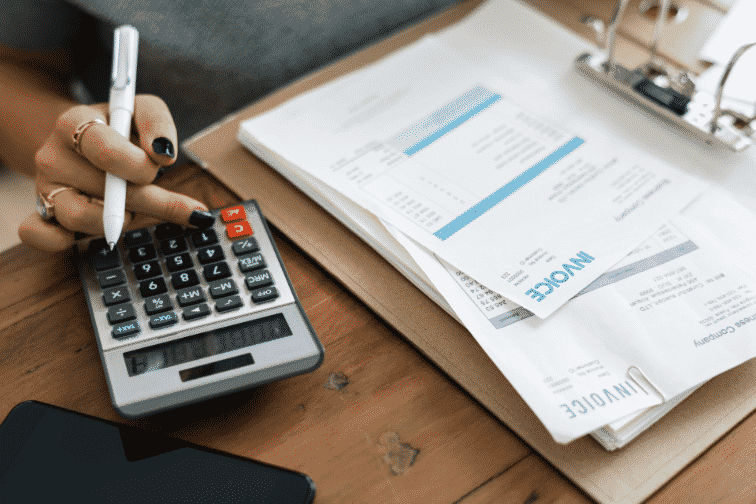
Utilities
You need to pay your utility bills to keep the lights on, the water running, and the gas line open especially during the lockdown period and you have to stay at home. These bills are top priority so you can keep your home safe and healthy in these unreliable times.
If you receive your hydro bill, and fear you cannot make the payment for the coming months, you may be protected by the disconnection ban, at least until July 31.
In Ontario, the Ontario Energy Board (OEB) has implemented protective measures that prohibits all electricity distributors in the province from disconnecting power because of non-payment until July 31. There will also be a rollback on electricity rates as part of cost-saving measures in response to the coronavirus outbreak.
To find out if you are covered by the disconnection ban and the rollback on electricity rates, read the full details here.
Communication Bills
You may also want to prioritize your cell phone bill and internet bill especially in the lockdown period or if you are self-quarantining at home. These will be major channels for you to be able to access information about what’s happening globally and stay in touch with family and friends, so keep paying them to keep the lines open.
Rent

Your home has become your greatest protection against COVID-19. If you are one of the 33% of Canadian households who are renting their homes, understandably you will want to focus on paying your rent as high priority. If you’re struggling to make the rent owing to the impact of coronavirus, don’t panic. Several provinces, including Ontario, Nova Scotia and New Brunswick have already issued temporary bans on evictions. This means you won’t be kicked out for as long as the eviction ban is in effect, although your landlord may still issue a notice of late payment of rent and may file the applications when the court resumes.
If you think you can’t pay your rent this month, the best thing to do is to talk with your landlord. Offer to pay what you can, even if it’s only part of the rent. This will help ensure you are not too far behind when things return to normal.
If this crisis looks like it will last for months, and it may, contact us so we can look at your situation in total and perhaps help you deal with the rent arrears then.
If you are having issues with your landlord, please find more information and resources on our blog’s section for Housing Help.
Our general advice is if you don’t have enough money to pay all of the bills, focus first on paying your utilities and rent before paying the other bills such as credit cards, medical bills, or other unsecured debts. As soon as you can, contact your landlord and service providers and see what they can do to assist you.
SECURED CAR LOANS AND HOMES LOANS
If you are paying a debt that is secured by an asset like your home or your vehicle the debt is classified as a secured debt guaranteed by the asset. This means that there are real consequences for not paying these debts – you risk having your car repossessed if you can’t make car loan payments and you can risk losing your home for nonpayment of mortgages. Hence, these are important, but not very immediate needs, to focus on as well.
What to do If you are falling behind on car payments

According to Ontario law, if you have been behind on the payments of your car loan, the lender has the legal authority to repossess the vehicle, and sell it to recover the amount you owe them. After the car is sold, if the amount is not enough to cover your car lease you will still have to pay the balance, and the lender could sue you and potentially garnish your wages.
Under normal circumstances, most lenders will not repossess a car until it is delinquent which means no payments have been made for 60-90 days. You can also take comfort in the fact that banks and lenders do not want to repossess your car as it usually entails that they take a financial loss. The repossession of a car is literally taken as the last resort. Hopefully, this will give you time to catch up on any missed payments.
In light of COVID-19 many of Canada’s banks and lending institutions are much more sympathetic to clients whose finances have been impacted by the health crisis and most are providing a deferment of payment on car loans for up to six months. If you see yourself starting to miss payments on your car lease, the best thing to do is reach out to your bank or car lender so they can assess your situation and see how to best help you.
Remember that banks and car lenders greatly prefer to keep the contract going rather than repossess the vehicle or house. They will normally be very willing to work on arranging a payment schedule.
What to do If you are falling behind on mortgage payments

In Ontario, a mortgage lender has the right to take possession of your home using either the power of sale or through a foreclosure if you default on your housing loan.
The good news is Canada’s banks and lending institutions are postponing mortgage payments for up to 6 months for those affected by the current health crisis. This will give you much needed time to catch up on payments.
The most reliable information on your mortgage options can be found at the Government of Canada and CMHC websites.
Another thing to keep in mind, lenders generally never start taking action for a power of sale or foreclosure as soon as you miss a single payment. The process for both is expensive and time consuming. They would rather work out an alternate payment plan to bring your mortgage back into good standing. If you are not able to pay your mortgage, the best advice is to contact your lender directly. They’ll look at your options and come up with a plan that will work best for your financial situation.
It is important to keep secure loan payments current, whether that’s a home loan or a car lease or some other loan that is tied to a valuable asset. If you think you’ll be unable to make an upcoming payment on any of these loans, the first thing to do is to reach out to your lender before you miss the payment and find out about deferrals or partial payments that can buy you some time. The key is to keep the loan on track so you can keep your assets.
CREDIT CARD DEBTS, MEDICAL BILLS, AND OTHER UNSECURED DEBTS

We do not advise anyone to stop payments on their credit card or other unsecured debts. However, we would put them at or near the bottom of the priority list when you are facing a financial crisis, such as now. The only reason we assess it this way is because there is the least immediate consequence for missing a few payments. With COVID-19 they will likely be the most flexible creditors to deal with. However, don’t ignore them either. If you can’t make a debt payment you should let them know so they won’t think they’re being forgotten or ignored.
In any case, the reality is that you may probably rely on your credit card or lines of credit to meet your immediate needs for food and medication because of your cash flow situation, and so you will have to keep on making payments to keep the credit lines open.
The good news is most credit card lenders are also offering up to six-month deferrals on credit card payments. This will give you time to reach out to your credit card company and possibly negotiate a payment plan that is best for your situation.
If you are worried about the uncertainty of your household finances right now and are having trouble organizing what debt to pay first during this financial emergency, make some priorities:
- Focus on meeting your immediate needs for food and medication
- Give importance to high priority utility bills like hydro, gas, internet
- Pay what you can on your rent or mortgage and talk with your landlord or mortgage lender about deferrals or partial payments.
- Meet the minimum on credit card payments and be very careful about taking on new debt, and if you must, make sure to keep your expenses and balances as low as you can.

If you have a lot of debt and are worried about how your finances can cope in this global pandemic, the best thing you can do right now is to talk with a Licensed Insolvency Trustee. We encourage you to be proactive so you can keep the best options open as long as possible.
We at Richard Killen and Associates continue to be committed to providing you with the best guidance and advice as you battle through this COVID-19 financial emergency. Our phones, emails and video chats remain open, call us at 1-888-545-5365 for a free consultation now.
How to Save on Valentine’s Day in Toronto

How can you save on Valentine’s Day – the most romantic day of the year? It may seem impossible, but really the trick is simple: spend less and get more.
You don’t have to fall prey to the hype and commercialization of Valentine’s Day and be pressured to empty out your wallet for a crazy expensive Valentine’s Day dinner date or a pricey gift to get for your new flame or significant other. Especially just after the holidays and the damage done on your precious savings, you need to bring the focus back on your finances to spend within your means, get back on track and stay in the black.
But you don’t want to be stone-cold hearted, you’ve got to give the day some special attention and do at least something romantic with your partner. So even with very little money, you need to know how to spend it wisely so you can get the most bang for your buck. It’s really all about making the effort to spend quality time together and making sure that both of you have an amazing Valentine day experience that’s impossible to forget.
Here are some ideas to make February 14th a stand-out experience without breaking the bank!
The Flowers

Of course, you’ve gotta give flowers on this special day most especially if this has been the norm since the start of your relationship. However, plunking down $200 for an over-the-top arrangement of long-stem roses is a bit too much when you’re on a tight budget. You can buy flowers for Valentine’s Day on the cheap, here’s how.
- Don’t buy from a florist. Buy from grocery stores, 24-hour gas stations, warehouse stores or at Local Farmers Markets, in particular stores that keep their flowers refrigerated. They can be just as long-lasting as those at a florist and are quite affordable, costing only a fraction of a bouquet from a florist.
- Roses are in very high demand on Valentine’s Day as it’s the symbol for romantic love, especially long-stemmed roses. If you want to save on Valentine’s Day choose romantic floral alternatives, such as red and pink tulips, orchids, lilies or carnations. Carnations in particular are some of the cheapest flowers around and they also last around 11 days.
- If you must buy roses, buy them ahead of time. Prices on roses hike up in the days before February 14, when they can go up double the price or more. Roses usually last
between five and seven days, thus you can buy them four or five days before when they may be a little cheaper compared to Valentine’s Day itself.
- Choose flowers with tight buds.This way they still have a few days to blossom. If the buds are already open, they’ll only last another day or two.
DIY Valentine’s Day Gifts

It’s Valentine tradition to buy gifts for one another, but if you’re strapped for cash and necessity trumps romance, it’s time to roll up your sleeves and get creative. You got it right, make a gift instead of buying a gift. Thoughtful, handmade gifts are just as romantic, and maybe even moreso, than those big-ticket items that come with a triple-digit price tag.
Start with making your own Valentine card. Writing a personal and heartfelt message to say how you feel about your sweetheart in your own words – now that beats signing your name to a canned sentiment on a mass-produced card at any time.
There’s lots of ways you can do this:
- If you’re an artist, you can create a lovely painting. Some good ideas would be, drawing a portrait of your significant other, or even a self-portrait is cool too, but romantic portraits of just the two of you will help you both see how much in love you are with each other.
- If you have craft-making skills, create a custom made card with fancy embellishments such as glitter, beads, stickers, origami or pop-up paper designs, or any other materials you like to work with.
- If you’re a skilled writer or expert wordsmith, express your love with the use of words in a love poem or a romantic love letter.
- If you’re a computer whiz, design a digital card with Photoshop or any image-editing software or create animated gifs with sounds and moving images. You can simply send this by email, and if you have a long distance relationship this will work big time.
Instead of buying extravagant gifts, you can try your hand on making adorable, easy-to-create projects that are made with love. Think something a bit out of the box that’s a little more special and will make them feel so warm and loved inside because of the time it took to create such a piece.

Here are some great Valentine gift ideas for your partner or family and friends :
- Make these Candy Bags or Lemon Drop Mason Jars if you can’t afford to splurge on a box of gourmet chocolates.
- A scrapbook or a mini collage card using memorable photos, favorite quotes or poems and laying them out with cute stickers, laces, ribbons, glitter, metallic paint and decorative paper will keep alive the memory of your love for each other.
- A snow globe with heart motifs is also a sweet gift idea.
- If you’re into sewing, you can stitch up a heart-shaped table runner or a pretty home decor for a perfect gift to a friend to use at a Valentine’s Day party.
- Food gifts will definitely be appreciated by your sweetheart and everyone else that has a sweet tooth! Try baking this Heart-Shaped Cake or a batch of these Mini Rosebud Cupcakes.
Remember, there’s no better gift than something handmade. Make use of your personal skills, whatever those may be, to express your love without having to empty your wallet.
For Affordable Date Ideas

If you’re going out for Valentine’s Day dinner, remember restaurants are packed and no doubt you’ll have to pay more to have special menus for the evening. Why not swap eating out for some less traditional gestures that will make the special meal of the day just as romantic.
Try to cook a meal for your special someone, or if your date is up for it, cook dinner together and then have a romantic Valentine’s dinner in the dining room, or for added romance, maybe do dinner in bed. Wouldn’t it be more lovely to spend the night relaxing over good food and pleasant company, instead of with strangers?
For a more eclectic but affordable date experience, there are more than enough free things to do to celebrate Valentine’s Day around downtown Toronto.
You can go ice skating under the romantic Toronto night sky at various skating trails across GTA for a perfect Valentine’s date. You and your date will have fun trying to decide between going to the classic Nathan Phillips Square or to the brand-new College Park skating trail. Or maybe skating and dancing the night away at DJ Skate Nights at the Harbourfront Centre is more your thing.
It also costs nothing to visit Toronto’s historic Distillery District to enjoy the Toronto Light Festival. You can enjoy a romantic stroll throughout the streets and enjoy live music, sample alcoholic drinks and check out the vibrant exhibits of local and international light artists.
If you’re looking for that not-your-average date idea, why not give away some love on Valentine’s day to celebrate love’s biggest holiday. What can be sweeter than spending the day with someone who doesn’t have a Valentine of their own. Whether you’re single or a couple, you can spread some love around to those who really need it on this special day. Why not visit a sick elderly relative or someone who has recently lost a loved one? You can simply give them a hug and kiss and talk to them for awhile and it will surely brighten up their day. If you’re ready to give more love, take it up a notch and try volunteering for a good cause. Volunteering is great throughout the year, but especially on Valentine’s Day for people who might otherwise feel left out. Check out your local listings or Volunteer Toronto for ideas on where you can lend a helping hand.
With these tips on how to save money on Valentine’s day you won’t have to spend a good chunk of your savings account on lavish bouquets, fancy jewelry, or big boxes of gourmet chocolates. The idea is to at least do something personal and romantic on February 14th, you know, all that wonderful, sappy stuff that comes straight from your heart. It’s okay to change things up a bit. There are many ways to still be able to show your loved ones how much they mean to you, without having to cost too much.
Richard Killen’s Christmas Message 2019
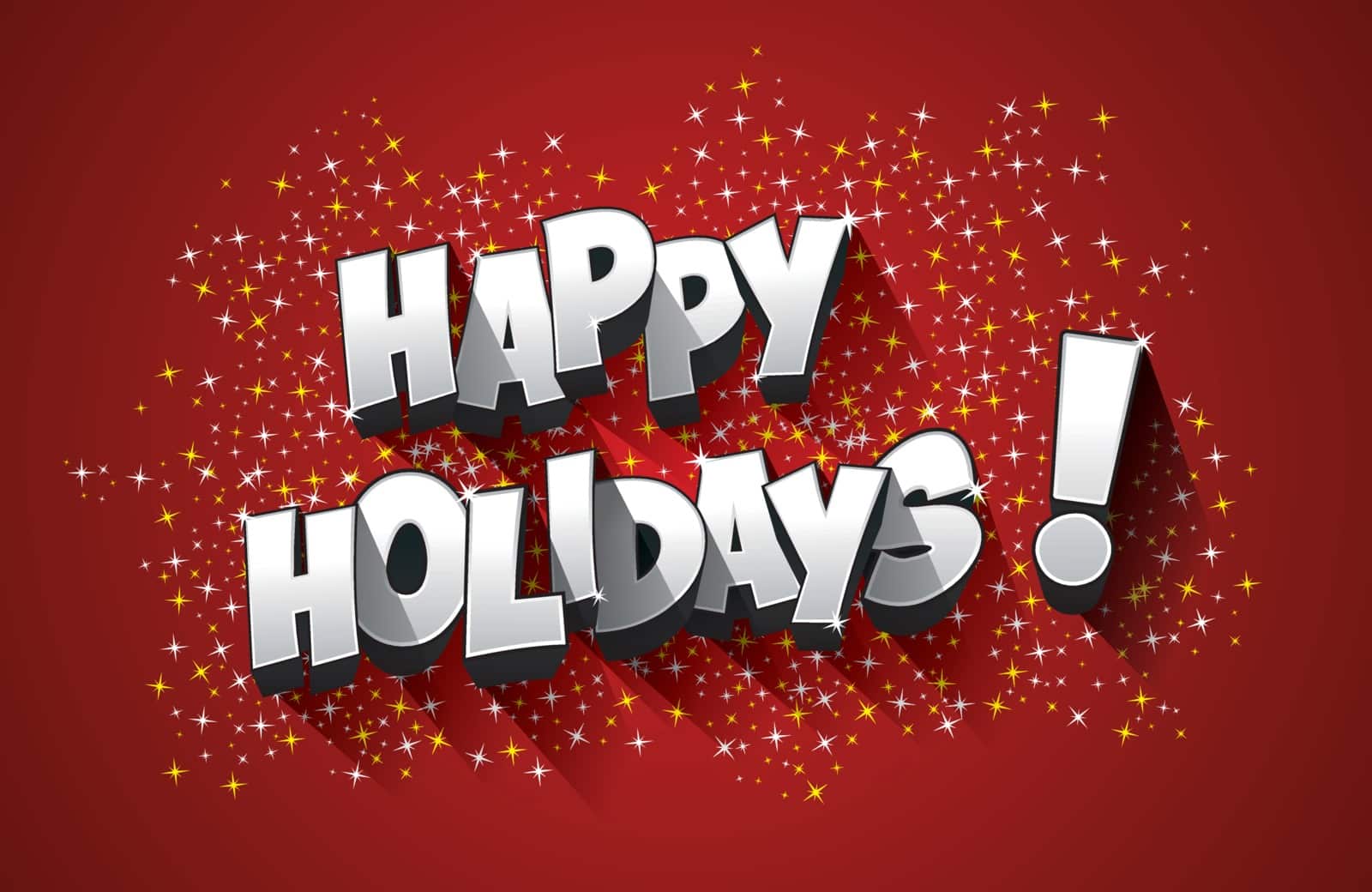
December is a very exciting and interesting time of year. From the official beginning of Winter to the various religious celebrations, such as Christmas and Hanukkah. It’s also a time for some philosophical pondering; reviewing the year past and formulating our resolutions for the coming year. Yes, December can be a very important month. It certainly is a good time to appreciate all the good things we are given, especially when they occur through no effort of our own.
True, not everything that happens to us is positive and easy to take. Everyone has the challenge of dealing with negative things like health problems and all the other personal trials life throws at us. Sometimes it feels like that’s all there is. But it isn’t, is it?
In the book I wrote, The Glass Is Half Full, I try to make the point that no matter how difficult our problems and challenges, the attitude with which we face them goes a long way to getting us through it and even turning these things around. Most importantly, we cannot let the bade things that happen to us define how we see ourselves.
I can’t think of a more valuable way to wind up the year. Maybe that’s why Christmas and Hanukkah take place at this time. For thousands of years these religious celebrations, and their cousins in other faiths, remind us of all the positive gifts life provides and how we should never take any of it for granted. They also encourage us to believe that facing up to our daily toil and turmoil courageously pays off for us in the end. That’s something we owe to ourselves and to those we love.
So with that thought, I’ll which all of you a very Merry Christmas and Happy Hanukkah and hope that you and yours are blessed with good health and happiness throughout 2020.
Financial Literacy Month: Taking Charge of Your Finances

Canadians celebrate Financial Literacy Month every November. Created and launched in June 2015 by the Financial Consumer Agency of Canada (FCAC), this initiative sets out three basic goals to help Canadians understand their rights and responsibilities to be able to:
- Manage their money and debt wisely,
- Plan and save for their future, and
- Prevent and protect themselves against fraud and financial abuse.
Financial Literacy Week Canada
The overall theme for this year is “Take charge of your finances: It pays to know!” There are weekly sub-themes throughout the month to bring specific focus on basic money management practices that are critical to helping Canadians understand how to manage their money the right way. These weekly sub-topics will include:
- Week 1 (November 3 to 9) – Start with a budget
- Week 2 (November 10 to 16) – Set financial goals
- Week 3 (November 17 to 23) – Be a smart financial consumer
- Week 4 (November 24 to 30) – Borrow money wisely
During the month-long celebration, organizations from the private, public and non-profit sectors across the country share information and resources, in the form of hosting workshops, seminars and other events to promote financial literacy for Canadians of all ages and to help them think more about their financial well-being and how they can improve it.
We at Richard Killen are joining financial organizations all across Canada to help you become smarter about your money.

Why Do We Need to Be Financially Literate?
These statistics based on a survey conducted by Lowestrates.ca and Ipsos Canada, the country’s leading provider of public opinion research, will help you understand why:
- 50% of Canadians have no budget to define their short-term and long-term financial goals.
- 32% of Canadians don’t expect to have enough money to retire comfortably.
- Only 36% of Canadians understand how applying for a credit card can negatively affect credit score.
- 60% of millennials don’t have enough money to cover an emergency expense.
- 85% of Canadians agree that financial literacy in Canada is lacking.
- 87% agree that the lack of knowledge is contributing to Canada’s consumer debt problem.
- 85% wish they personally had the opportunity to learn more about finance and the economy while in school.
- 94% agree that Canada’s schools need to do a better job of teaching financial literacy skills to children.
- Only 16% of Canadians feel that they have strong personal financial literacy skills.
- 39% feel that they have poor financial literacy skills.
- Only 35% agree that Canadians overall have strong financial literacy skills.
Money touches all areas of our life, so it’s extremely important to be financially literate for our own financial well-being in life. If you know this knowledge and skills early on in life you will be able to develop good money-management behaviours in the long term. This will enable you to make wise financial decisions and actions all throughout life, and most importantly, if you do make poor decisions you will know how to fix them and take steps to plan better for the future.
Basic Financial Literacy Skills

Becoming financially literate doesn’t happen overnight. You learn gradually starting with the basics and build fluency over time.
Perhaps the most basic financial skill to start learning is knowing how to budget. Budgeting is the best way to see how money comes in and out of your life. It will require you to go over your income and expenses and analyze your spending habits, and likely make changes where you need to. It may sound too restrictive, but it will help you take control of your money, instead of your money controlling you. And when you have better control of your money, you are able to make sound financial decisions.
Ideally, this is what you want a basic budget plan to have:
- A breakdown of all your needs all of your expenses over the course of a month so you can account for each of them.
- Track every penny you spend weekly or twice a week, depending on how often you deem necessary, and compare your actual spending to the budgeted amount.
- Evaluate ways for lowering your monthly bills as your expenses can’t be more than your income.
- Identify some income left over at the end of each month to build emergency savings or put toward other financial goals.
The only way for budgeting to be effective is for you to be realistic and put together a plan that you can actually follow. The more time and effort you put into developing your household budget, the better understanding you will have of how you’re spending your money and, as a result, the better you will be able to identify where your financial holes are. The sooner you can see the gap between what you can afford to spend and what you actually spend, the closer you can get to stop living paycheck to paycheck.

Knowing how to manage money effectively is a valuable life skill to have and financial literacy equips us with the knowledge and skills we need. We can learn to be financially literate, and it’s never too late to start learning.
If you’re interested to know about your own financial literacy, take this Self-Assessment Quiz to help you find out.
We encourage you to also come and talk to us to get a free checkup of your overall debt and financial health. As Licensed Insolvency Trustees, we are government regulated debt professionals and can help you to improve your overall financial literacy and learn new ways to become savvier with your money. Soon, you will take charge of your financial freedom with a debt-free life. Celebrate Financial Literacy Month with us!
Financial Literacy Month – How to Set Financial Goals

Another focus of this year’s Financial Literacy Month is to help Canadians learn how to set financial goals. It’s just basically figuring out three important things –
- Where your money should go,
- What you want it to do, and
- What you are saving it for.
It’s a critical step to becoming financially literate for these reasons:
- It will help you to set your own priorities for your money.
- It will help you work toward something specific.
- It will help you get into the habit of saving to achieve your goals.
- It will help you decide exactly what you think you should do with your money so you can make the most of it.
If you don’t have solid financial goals, you may tend to lose direction and are likely to spend more than you should and end up in debt, or if you have savings, it might end up floating in limbo when your money could be put to good use. On the other hand, if you have a financial plan, you’re far more likely to pay bills on time, to have an emergency fund, to have savings and investment and are more likely to feel financially stable.
Types of Financial Goals

Some goals are more pressing than others, like down payments, paying credit card debt and setting up emergency savings. Other goals are vital, such as saving for retirement. You can set short-term, mid-term, and long-term financial goals, it doesn’t matter, what matters is to get started right away so you can maximize every penny you have.
Here are some good goals you might want to consider setting for your own financial well-being:
Set a budget plan

Setting a budget is a very common financial goal because, really, it is the most basic step you can take to get control of your financial future. A budget will help you clearly define the amount of income you have and where you are spending your money on. It will then help you see any expense that is stopping you from reaching your goals. If you diligently live by a budget, you can stop spending too much, you can stop going into debt and you can start saving.
Paying off credit card debt
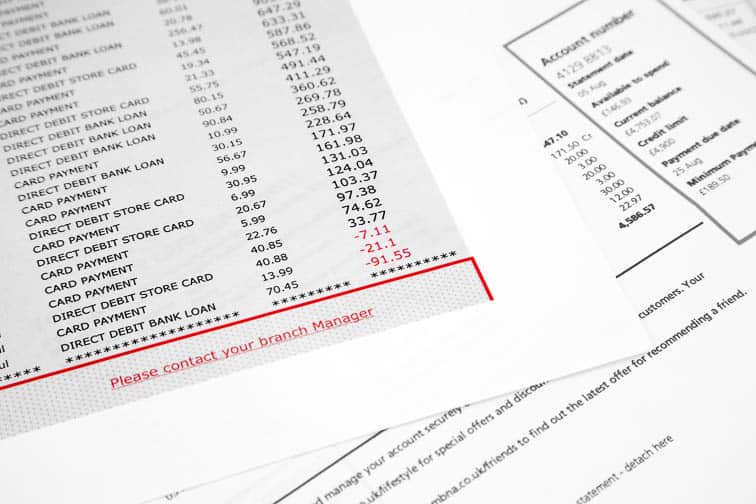
If you have high-interest credit card debt, getting rid of it should be a top priority. You can use the snowball method, the avalanche method, do a transfer balance, try credit consolidation with a reputable company, whatever debt elimination strategy you can afford to do, the main goal should be to pay that debt off first and as soon as possible. Credit card debt can hinder your ability to build wealth and reach your financial goals if you are not proactive. The high-interest rates eat up so much of your cash flow that could be used for other objectives instead of interest payments, so you need to tackle the debt first so you can move forward.
Saving for an emergency fund

Having an emergency fund is like having some financial assurance that you have some cash stash away that you can easily use to help you deal with life’s rainy days easier. Whether it’s an unexpected home or car repair, or an unplanned visit to the doctor or dentist, your emergency fund is essential to help cover costs that you don’t plan to happen.
33% of Canadians feel that they don’t have the financial resources to handle an unforeseen event, so if you’re feeling the same concerns, take some solid steps right away to build an emergency fund that will help you have some peace of mind, knowing you can cope with unforeseen bills and expenses.
The general rule is to have enough funds to cover up to six months of your living expenses. Start building your savings in small steps with what you can actually afford to set aside right now. That’s a good start, and be consistent and in time you will see your funds grow.
Saving for retirement

Saving for retirement is another top-rated financial goal. One of the topmost concerns about retirement is if you will have enough to live on. The key is to plan for an early retirement, this way you’ll still have plenty of time to make it even if you hit a few snags before the legal retirement age of 65.
You need to consider two critical points when you’re planning for retirement:
- Make sure you are able to retire without loads of debt, and
- You have a reasonable income stream that you can live off of.
A long-term approach of disciplined saving and investing can help you attain this goal.
Many of us don’t bother to set financial goals. We choose to rely on luck and, well, come what may. However, setting financial goals can help influence the way we manage money and can greatly increase the likelihood of our financial success. With goals set up, we are able to better meet savings needs, we are able to control our spending, we are able to make wise buying decisions and use credit responsibly and avoid going into debt – all because there is a plan, a clear and solid direction and intention of where our money should go.
Cheap and Free Things to Do in Toronto in November 2019

So many cheap and free things to do in Toronto in November 2019, it’s going to be a busy month. But, if you’re low in budget, and are out to save a few bucks for the gift-giving season, don’t worry about missing out. You can still have so much fun without breaking the bank!
Remembrance Day Ceremonies

Let’s not forget to take the time on November 11 to honour all those served, including the many who gave their lives for our country. There are several Remembrance Day ceremonies and events lined up throughout Toronto. You might want to plan to attend one.
You might also want to check out events and programs planned for Remembrance Day at the Toronto Zoo if you’re anywhere nearby.
Or why not go to Remembrance Day concerts with friends or visit museums for amazing exhibits?
Santa Claus Parade

It’s still on November 17, but you can start getting excited about Santa Claus coming to town! This will be a massive parade with all kinds of festive floats and special characters and of course, we will be waiting to see the star of the show, Santa Claus, make his grand appearance! There’s a new route this year that will begin at Parliament Street and travelling south on University Ave before ending at St. Lawrence Market. Be sure to activate your map and GPS so you can trod along without getting lost.
Toronto Christmas Market

You cannot miss out on the magic of the traditional Christmas Market! It’s the most anticipated holiday event of the year. Get ready to see the Distillery District transform into a magical winter wonderland filled with twinkly lights, Christmas decorations and tasty treats and drinks – there’s so much to see and do! You can shop around for homemade crafts, or visit Santa’s house, maybe explore a giant light tunnel and enjoy festive music and live entertainment. Admission is completely free, and you’ve got plenty of time as the market will run from November 15th until December 23rd this year.
Cavalcade of Lights

A free fireworks show will light up the dark night sky and Toronto’s official Christmas tree will once again be lit up this year. There’s also live music by some of Canada’s best artists and a skating party at Nathan Phillips Square – all for free. It will be on November 23, 2019, so save the date on your calendar now!
Chrysanthemum Show at Centennial Park Conservatory

It will run until November 25, 2019, this year, so you still have a bit of time to see creative displays of over 80 varieties of chrysanthemums. It will be a colourful show for sure! It’s open for the whole family and completely free!
Regent Park Film Festival

The organization is well-known for hosting Under the Stars Movies in the Park, year-round film screenings, school programs and workshops at no cost, and of course, the Annual Film Festival, which will be taking place on November 20-23, 2019 this year.
If you’re a fan of films that break stereotypes, such as those with themes about inner-city issues, immigrant experiences and multicultural relationships, or maybe you would just like to show support to local and international independent artists who are struggling to have their work seen, you need to make sure to add this event in your calendar.
One of a Kind Christmas Show and Sale

From November 21 to December 1, 2019, be sure you plan a visit to the Enercare Centre at Exhibition Place for North America’s largest event supporting crafts of all kinds and its craft makers. It will be a cultural and creative experience altogether. You’ll enjoy exploring the huge selection of unique gifts and decorating ideas created and handmade by local artisans – from chocolates to some very pretty clothing and very beautiful unique art pieces for the home. Oh, maybe you’ll want to get started on some serious holiday shopping there.
High Park Toronto in Fall

High Park is free all year round and you can go any time of the year, but you definitely have to see it during the Fall season. It literally transforms into a pretty magical place to enjoy the fall foliage. Imagine how remarkable it is to see some of the maple trees all ablaze in vivid orange and red colours. November is the remaining days of autumn, so it’s particularly beautiful right now. And while you’re there, stop by at the High Park Zoo and say hi to the animals.
From Christmas tree lighting ceremonies, Christmas markets and a chance to meet Santa Clause at the Santa Clause parade, there’s just a ton of free things to do in Toronto in November that will help bring you some early holiday cheer. The best thing is, you can do most of them for free or as cheap as possible so you won’t be blowing all your money and still be able to join in the fun!
4 Money Saving Tips That Can Help You to Save on Groceries

According to Statistics Canada, the average Canadian family of 4 people spends about $214 on food for each person every month. And, this is just for groceries and does not include eating out. Financial experts recommend cutting down this average budget to only $125 per person on food each month. That’s a pretty tight budget! Can you do it?
Try these money saving tips:
Make a Grocery List and Stick to it
The best way to shop is to have a list on what things you need to buy and to make it a point to buy just what’s on the list. This avoids impulse spending, and according to research if you make a habit of sticking to your list you can save up to 23% on your grocery bill. Now, that’s huge savings already!
A grocery list will also help you plan your meals for the week. When you’re planning your weekly menu make a grocery list based on your plan. So every week, you have a meal plan and a list to guide you to buy more nutritious and less pricier food items and you can avoid buying expensive and unhealthy food items on impulse.
Stock Up on food items on sale
The month of February is National Canned Food month in Canada. Did you know that? Well, it is and it’s during this time when you’ll likely find specials on canned produce, so take advantage and stock up on things like canned beans, tomatoes and even canned fruits.
Another themed month linked to saving money on food is on March which has been declared as Nutritious Food Month by the Dietitians of Canada. Frozen foods packed full of vitamins and minerals likely go on sale, so it’s a great time to stockpile on frozen veggies and fruits, and also bread and meat.
Canned and frozen vegetables and fruits can be a huge money saver especially when fresh produce is out of season and still very expensive to buy.
Another great way to look at what’s on sale is to take the time to browse through grocery store flyers, newspaper ads and online to see what items are on sale and which stores you can get them.
Remember to stock up on only things that you normally use. It’s the only way this will work. You won’t save if you go splurging on food items that you don’t need. By stocking up on grocery items that are on sale, you can save about ten percent to twenty percent or even more on your grocery bill for the month.
Go on a meatless diet
Canned and frozen vegetables and fruits are also just as nutritious as fresh produce. So, even if you’re saving big on costs you’re not going to compromise on nutrition. Now, here we have another way to bring down your monthly food shopping bill. Plan out meal recipes wherein you can make use of these canned and frozen vegetables and fruits, for example, you can make large batches of soups, chili, stews, pie fillings, cookie dough batches, or prepare meatless meals like bean burritos with salad, rice and bean casseroles with vegetables, vegetable and cheese omelets with whole grain toast and tofu vegetable stir fry on rice noodles, the recipe list can be endless.
When you serve meals with nutritious, fiber-rich meat-free alternatives, you eat less meat, which is healthy and good for the whole family, and you also buy less meat, which will cut your food costs significantly.
Skip Grocery Shopping
Another food saving hack you can plan your budget on is to skip grocery shopping once every month. When you stockpile on groceries when they are on sale, you can live off of what you stockpiled and then skip grocery shopping at least once every month. If you can’t do this every month, then aim to do it maybe once every three months for a start. It will still save you more or less 25% on your food costs for the year.
Yes, food is expensive, but it doesn’t have to be. There are many ways for Canadian families to save on groceries every month and still eat well and healthy. All it takes is some strategic planning. Use these money saving ideas to start with and then try combining other money saving hacks you can find and in no time you can make it possible to lower your grocery budget and save some serious money that you can put towards other financial goals.
4 Real Ways to Make Money Online and Increase Your Budget

Building a lucrative side hustle that can let you make extra income can really be a lifesaver. For one, it can let you earn unlimited income. With a traditional job you have your regular income, now if you augment that with a side business that literally does not limit you to how much you can earn. Imagine what all that extra money can do to help you reach your financial goals — maybe it can help you pocket a few extra dollars to save up for that family vacation you’ve been planning for a long time, or maybe you can finally catch up paying some much-needed bills or maybe even start saving and building your emergency fund.
Looking for a side hustle to make extra money isn’t hard. Not with the advent of the Internet which has opened so many opportunities to make money online. Of course, you’ll have to choose carefully as some opportunities can be a scam. However, if you do it right and work really, really hard, you can make a decent income with a few of these legit online opportunities.
Earn cash by using apps
There are companies that will pay you to simply download and install apps on your cell phone and leave them there to run in the background and it will track your spending and purchasing habits. They pay you to use the data for marketing research purposes. If you’re interested in a passive way to make money online, try out these apps: Nielsen Digital Voice App, Smart Panel, Media Insider Panel.
There are also apps that pay you to do various tasks, like watching TV, exercising, or taking photos. You simply select tasks from their list of tasks and you earn money when you complete it. The Ibotta app, for example, let’s you take photos of your receipts and get rebates. Another platform, perk.Tv, lets you make money by watching videos on android phone. Inboxdollars is a search engine app that pays you to search the web.
Test Websites and get paid
There are companies that ask people to run through a site and perform user testing. You then give them feedback on whether the site is user-friendly or not, does it have too many pop-ups, can links be found easily, are the fonts and colors readable, is it easy to navigate, does it load fast, and is using the site in general a pleasant experience or is it a pain. You just basically have to have a basic understanding of what makes a website user-friendly, then you simply surf the web, click around on a site, take some notes, and you’re all done. You can earn anywhere from $10 to $15 for about 20 minutes of work. That’s not bad at all! If you think you can do this, here are some reputable sites you can check out : UserTesting, Enroll, TestingTime, TryMyUI, UserFeel, UserLytics and UserZoom.
Get paid to do a gig
If you’re a master at doing odd jobs, you can sell your services on Fiverr. You can sell just about anything on this platform, tarot reading, creating unique cartoon portraits, write resumes and cover letters, create social media graphics, create video advertisements, make crafts, any talent that you’re really good at that you can do for five dollars and someone will pay for you to get it done. All you need to do is sign-up to post a job, set your price and wait for people to contact you and request for your services. Prices start at $5, but you can set your prices higher if you can offer premium value for your service. Don’t give up if you don’t make money fast as there have been many sellers who ultimately earn six-figure-plus revenues annually.
Answer questions and make money
There are websites that can pay you to answer questions with your expertise. This is a great side hustle that can help you make money online, particularly if you have a high-level skills such as medicine, law, automotive, veterinary, information technology and other expert skill or knowledge in a particular field. JustAnswer is one of the best websites for earning money answering questions. It’s very high trafficked so you have more opportunities to connect with visitors and get thousands of questions a day. If you have technical expertise, you can try answering questions in FixYa which is related more towards fixing electronics and mechanical things. If you become a top expert, you can easily earn $1,000 each month just helping people solve their problems.
There many legit ways to make money online and avoid financial problems like debt and bankruptcy. However, just like a traditional job, it’s not something that is going to be easy. You won’t get rich quick. It’s going to take a lot of work and you’re going to have to really commit because it might take awhile to make more than a few dollars. Ultimately, hard work will pay off and you’ll soon be enjoying the benefits of having a side hustle or two to earn extra money.
Getting out of debt on your own
 Tax season is here. Like many Canadians you may discover that you now have a tax debt to add to your regular commercial debts: credit cards, loans, etc. This can make it a very stressful time of year. Of course, if you are one of the lucky few who has minimal or no regular debts and have the means to pay what you owe in taxes, you have no problem. If you’re not, you do.
Tax season is here. Like many Canadians you may discover that you now have a tax debt to add to your regular commercial debts: credit cards, loans, etc. This can make it a very stressful time of year. Of course, if you are one of the lucky few who has minimal or no regular debts and have the means to pay what you owe in taxes, you have no problem. If you’re not, you do.
As nervous as all this might make you, keep your eye on the end target – being debt free. It might help you deal with things more easily. Taking control of your situation comes with its own rewards: first, you’ll have less stress, and second, you’ll have more cashflow to put to savings.
To start, if you’ve decided to tackle your debts alone, you need a clear plan to help you determine:
Whether you can do this using only your own resources
How much can you afford to put towards paying off the debt?
How will you find the money to pay the debt?
How long it will take to pay off the debt?
Next, your payment options may be:
Making monthly minimum payments
Using your tax refund
Talking to your creditors to change your payment terms
Or, getting a consolidation loan
Do you know exactly how much you owe? This is a simple calculation. Be sure to include auto loans, payday loans, credit cards and other loans like family loans and medical bills. Start by itemizing your debts by gathering your most recent financial statements for all loans and credit cards. You may also decide to check your credit report from each of the credit bureaus (Equifax Canada and TransUnion Canada).
Next, list all our debts on a worksheet or computer program, specifying:
Name of creditor
Balance due
Interest rate
Minimum monthly payment
From this list you can create a monthly budget:
A: Add up our monthly income after taxes and other remittances.
B: Tally up all our monthly expenses, which will include our rent or mortgage payment, utility bills, childcare, student loan payments, insurance, groceries and other monthly household expenses.
C: Subtract all of our monthly expenses from our monthly income and what’s left is the amount we have left to pay off our debts. The formula would basically run this way: A minus B = C.
If you think the amount going towards your debt payments is too small, review your expense numbers and look for ways to reduce your spending. Also, consider ways to make more money so you can pay off your debt faster. It’s important to remember that the higher A is and the lower B is, the faster you’ll reach the finish line.
Another option is to try to obtain better terms. Now that you’ve come up with a clear repayment plan, you can try to negotiate better terms with your creditors. Remember: nothing is necessarily carved in stone. With a good plan, you actually have something of value to offer the creditors. Your main goal is to negotiate a more favourable interest rate. That would make the finish line closer still, which makes a big difference.
Here are some tips to use when speaking to your creditor about lowering your interest rates:
Ask if you qualify for a balance transfer on a zero interest or low rate interest credit card. This can save you a lot of money in terms of interest.
Check out student loan consolidation and income-based repayment plans that are exclusive to high level student loan debts.
Look into whether you can refinance a high-rate auto loan into a lower-rate.
Inquire if you can consolidate your debts into a personal loan or home equity loan.
Richard Killen, Licensed Insolvency Trustee and author of the new eBook The Glass is Half Full which is now available to be downloaded for free from iBooks, Amazon, Indigo and Kindle. Richard Killen & Associates, with offices conveniently located across the GTA, have been helping Canadians resolve their debt issues since 1992.
